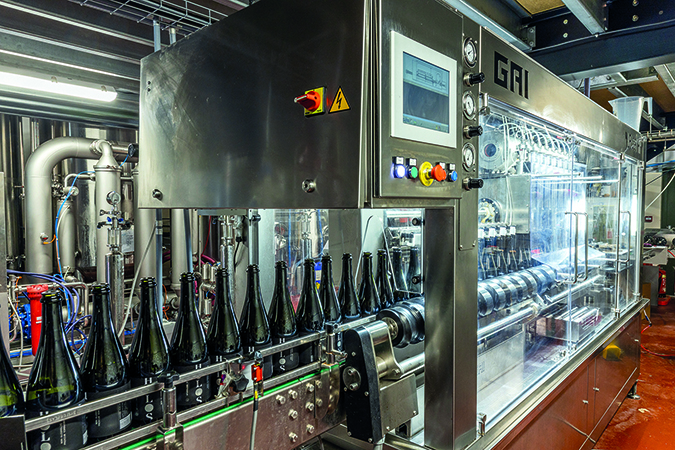BevTech Ltd was formed 10 years ago to fill a gap in the UK market by providing the best winery equipment and mobile services.
David Cowderoy’s winemaking experience has now spanned five decades, and he has an enviable – and invaluable – gold mine of production knowledge. David’s company, BevTech Ltd was formed 10 years ago to fill a gap in the UK market by providing the best winery equipment and mobile services – supported by winemaking expertise. Vineyard finds out how David’s open and honest approach to business means that his extensive knowledge provides his clients with unique support, as well as logical cost-effective solutions for their wine production ventures.
David Cowderoy grew up in one of the UK’s earliest vineyards, Rock Lodge in West Sussex, which was planted in 1963 by his father, Norman Cowderoy – one of the industry’s forefathers and pioneers. The vineyard is now managed by Plumpton College. After a post graduate diploma in viticulture and oenology from Australia’s Roseworthy College in the 1980s, David has now made wine in countless countries and regions around the world – and at more wineries than he can remember. “Plus a few I would rather forget,” laughed David.
“Although I was fortunate enough to experience vinegrowing and winemaking from an early age at Rock Lodge Vineyard, I chose winemaking as a career because it is multi-disciplined, it incorporates science and practical skills, as well as creativity and artistry. I love the seasonal nature of wine production, the fact that every year is different keeps it fresh and challenging – and I enjoy the finished product!
“I set up BevTech after returning from winemaking in France in 2011. I was providing consultancy to a UK vineyard setting up a winery and it quickly became apparent how poorly served the industry was with UK-based equipment suppliers – particularly those that actually knew about winemaking and were able to give good advice and appropriate solutions. I also saw that many smaller wineries could not justify the cost of a consultant, so through BevTech, I could also provide advice and help with improving wine quality – which of course is good for the industry as a whole,” commented David.
“I spent sometime researching and visiting potential suppliers in Europe, to find those with excellent quality and value for money – and of course top after sales service. I am very happy with the partners we have at the moment and have an excellent working relationship.
“The first company I linked up was SK Škrlj from Slovinia who manufacture tanks and presses as I was most impressed by their facilities and quality which rivals the best from Germany, Italy or France, but at a very competitive price.
“The next was a chance encounter at a trade fair where I met Luigi Mori . Mori’s range of crushers, de-stemmers and must pumps have some excellent design features are well engineered and yield very good results, preserving fruit quality. Their range extends beyond the winery and I now also supply their grape harvest trailers,” added David.
BevTech clients represent a broad spectrum of UK wine producers from new entrants to, as David says, “the old hands who have been in this game as long as I have – and are now firm friends!” After 40 years of winemaking around the world David has gained plenty of knowledge and experience – but admits: “ Being a poor salesman – but hopefully this means I give good honest advice!”
“I think we can all agree that it is currently a very exciting time in the industry. I have worked all over the world and see many regions as rather stale and stagnant, but the UK is innovative, dynamic and energetic – it’s both refreshing and gratifying to be involved in the UK industry,” said David.
Winery equipment for winemakers
BevTech specialises in supplying winery equipment and services, including mobile services to UK wine producers. “Equipment can be as simple as a pump or complete turn-key winery installations. Our ethos is to ensure that the customer gets the appropriate equipment for their situation – which is not necessarily the most expensive. With our understanding of winemaking, we spend a lot of time talking about a customer’s requirements, for now and in the future, for their individual situation, their wine styles, markets, and even workforce, in order to propose the solutions that will work best for them,” explained David.
Quality at the forefront
“Anyone who has worked in wineries around the world will have come across equipment from GAI, and will know it’s reputation for quality,” commented David. For BevTech, it was a major coup to win this agency. “I was absolutely delighted when we agreed this with GAI. I think that as I am a winemaker we could communicate about the things that really matter. Many of their staff are winemakers or from winemaking families.” As David explains, the GAI factory near Turin is state of the art. “As you wander round the factory, you come across robotised forklifts silently transporting components around the place and the odd technician with an iPad controlling a bank of lathes. It’s quite eerie.” The technology doesn’t stop there. “The parts picking is modelled on that used for VW and is highly automated. They even have automated picking of their stationary.”
Latest in the lineup
The most recent addition to the range of suppliers to BevTech is Ayres vini, who are a collaborative group of several complimentary companies. “We had been working with Sparkling Equipment for some time, who are the major supplier of disgorging equipment in Cava. We also represent O.M.B.F., from Italy, who manufacture corking, wiring and filling machines. Ayres vini is an association with these two companies, plus CMP, suppliers of riddling machines and Fileurope, for stillages – so we now have an end to end supply capability. The real beauty of this collaboration is that the engineers of each company know the others equipment – so can ensure seamless operation,”
added David.
Mobile bottling and labelling
Mobile services are a common feature in most wine regions around the world as they make good business sense – it’s usually better to use a contract service rather than invest in high-cost capital equipment that is only used a few times a year. “I was familiar with mobile services from working abroad and knew the advantages. BevTech’s first service was the GAI mobile bottling line in 2015, and it has hardly stood still, as throughput has increased year on year as the industry and wine volumes grow. Producers are realising the advantages of using mobile contract services, not just the cost, speed and convenience, but the benefits of skilled operators and premium equipment, such as the GAI, that preserves the wine quality. I think we are currently bottling, and labelling, close to a quarter of all the wine produced in the UK – both still and bottle fermented sparkling, with screw cap, cork or crown caps. There has been so much demand that I am now purchasing another GAI bottling line for next year. We will also have capabilities for Stelvin Lux and Vinolok,” commented David.
Mobile filtering
“Last year we introduced a mobile filtering service, using a Padovan TMCI, 60m2 crossflow which filters 40hl/hour, and can operate 24 hours a day. It is also suitable for filtering small batches, such as 1000 litres. We immediately saw a huge interest as producers find that the mobile crossflow is much easier than other filtration methods, with lower losses and, when needed, sterile filtration is guaranteed,” said David.
Mobile juice recovery from lees
There can be significant losses in the winery if it is not equipped to recover juice from the lees. “A new mobile service from BevTech, to be introduced this harvest, is juice recovery from lees, with the Padovan Dynamos rotary crossflow filter. In fact, I wrote about this in Vineyard magazine in July 2021, the article is called ‘A new way to handle your bottoms’ – and there has already been a lot of interest, which makes sense as juice is valuable!” David added.
Mobile cold stabilisation
Another new service from BevTech this year is a cold stabilisation unit, from Padovan which will be on display at the Vineyard & Winery show in November. “This performs continuous cold stabilisation by the contact process, and with a throughput of up to 400 hl/day, not only is it fast but economical as its energy consumption is far less than batch treatment,” explained David.
Charmat sparkling service
Charmat method sparkling wines undergo secondary fermentation in a closed pressure tank, rather than a bottle. The number of Charmat method sparkling wines in the UK is increasing, with some rather large volumes entering the market and BevTech is currently the only contract winery able to offer this service.
“Charmat is a particularly exciting development in the industry for me. Many years ago, I was at the forefront of traditional method sparkling wine in the UK, so it’s apposite that I should now be leading the charge with Charmat productions! We are doing production for more and more clients – creating some very interesting styles with extremely high quality – and this year I plan to make our own.
“From a winemaking perspective there is no difference to carrying out the fermentation in a bottle or a large tank – apart from the fact that the winemaker has more control over the process in tank – the winemaking is still a skill. The winemaker can easily add nutrients, stir lees, or if needed re-inoculate – all of which are impossible when the second fermentation is in a bottle. Bottling is more challenging, but we have a GAI counter pressure filling line for bottling Charmat sparkling wines or any beverage that is under pressure.
“If a winery plans to keep a bottle fermented wine on lees for the minimum required time of nine months, then I don’t understand why they wouldn’t choose the Charmat method as the results would be the same or actually better,” David added.
Lower alcohol and wine in cans
“I am planning to do some trials on Charmat with lower alcohol, as I think this is an interesting and very real consumer-led trend in wine. There is an opportunity, in wines such as Charmat with high dissolved CO2, to produce a balanced product with less than 10% alcohol – which doesn’t impact on the flavour profile and is not noticeable by the consumer.
“Providing a canning service is something I keep picking up and putting down. Wine in cans is potentially a very interesting product for the UK and one that is only just starting to be explored. However, I have no immediate plans to add a canning line – as so far, my hopes have been dashed by a global shortage of cans,” exclaimed David.
Challenges ahead
“Lots of producers will hate me for saying this but the industry has to keep in mind the risks of over production, producing more wine that we can sell. It has happened to almost every other wine producing country and its completely naïve to think it won’t happen in the UK – the question is not if, but when, and how we can prepare for it,” David warned.
Last imbibe?
Gusbourne Estate 2015 Boot Hill Pinot Noir – an absolute delight and great to see how English Pinot Noir can age so beautifully.
Any spare time?
Training and rowing competitively – now on the Master’s circuit –
takes up most of my spare time, and I have also taken up archery recently. I enjoy a nice long walk with my Border Collie, Monty (short
for Montepulciano!) – particularly if followed by a good pub lunch.
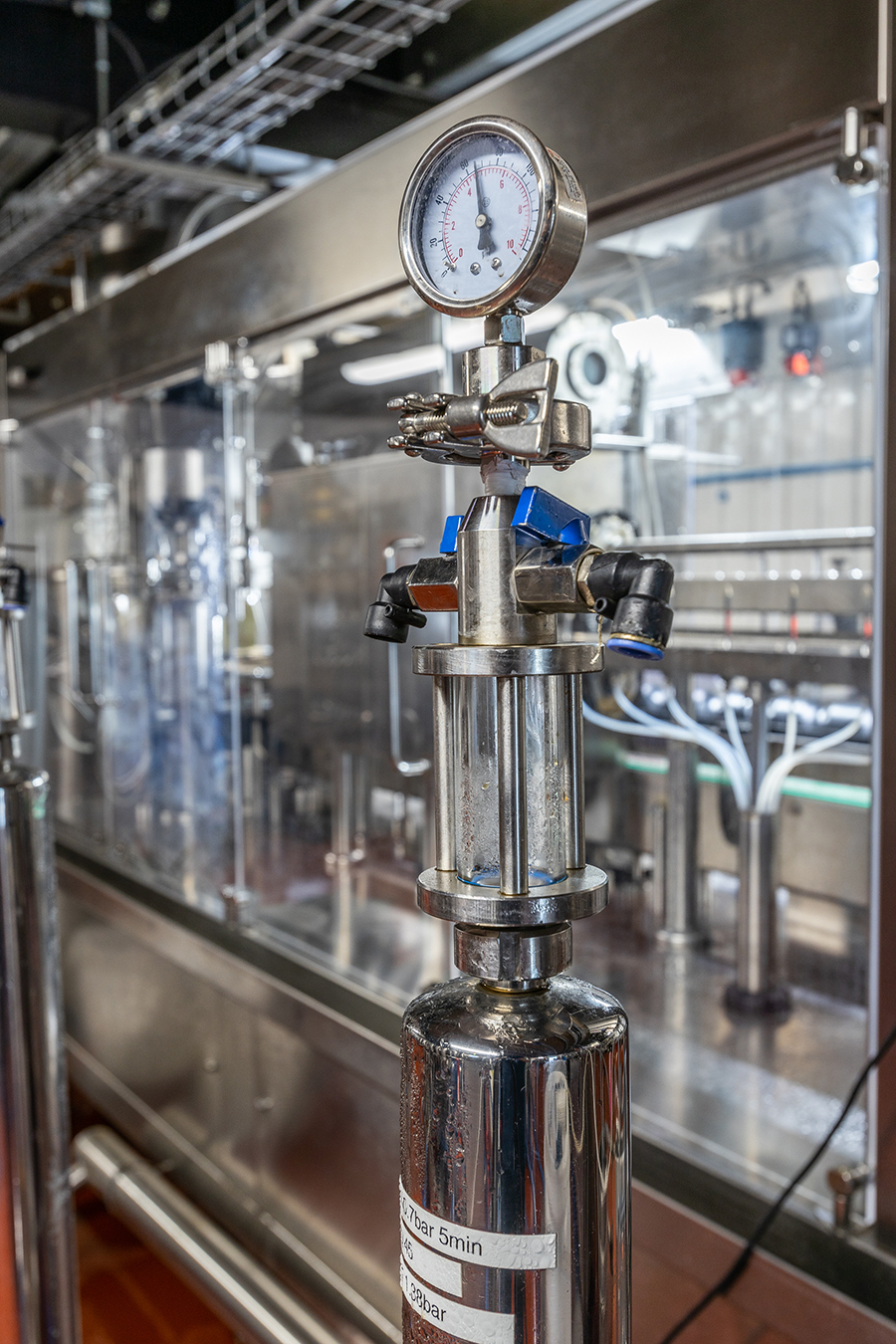
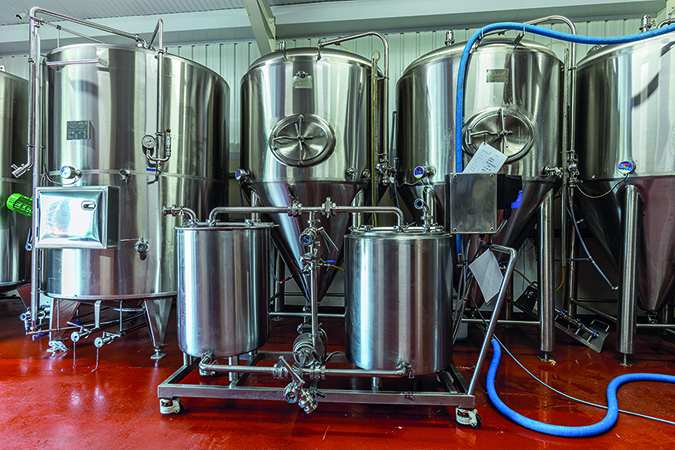
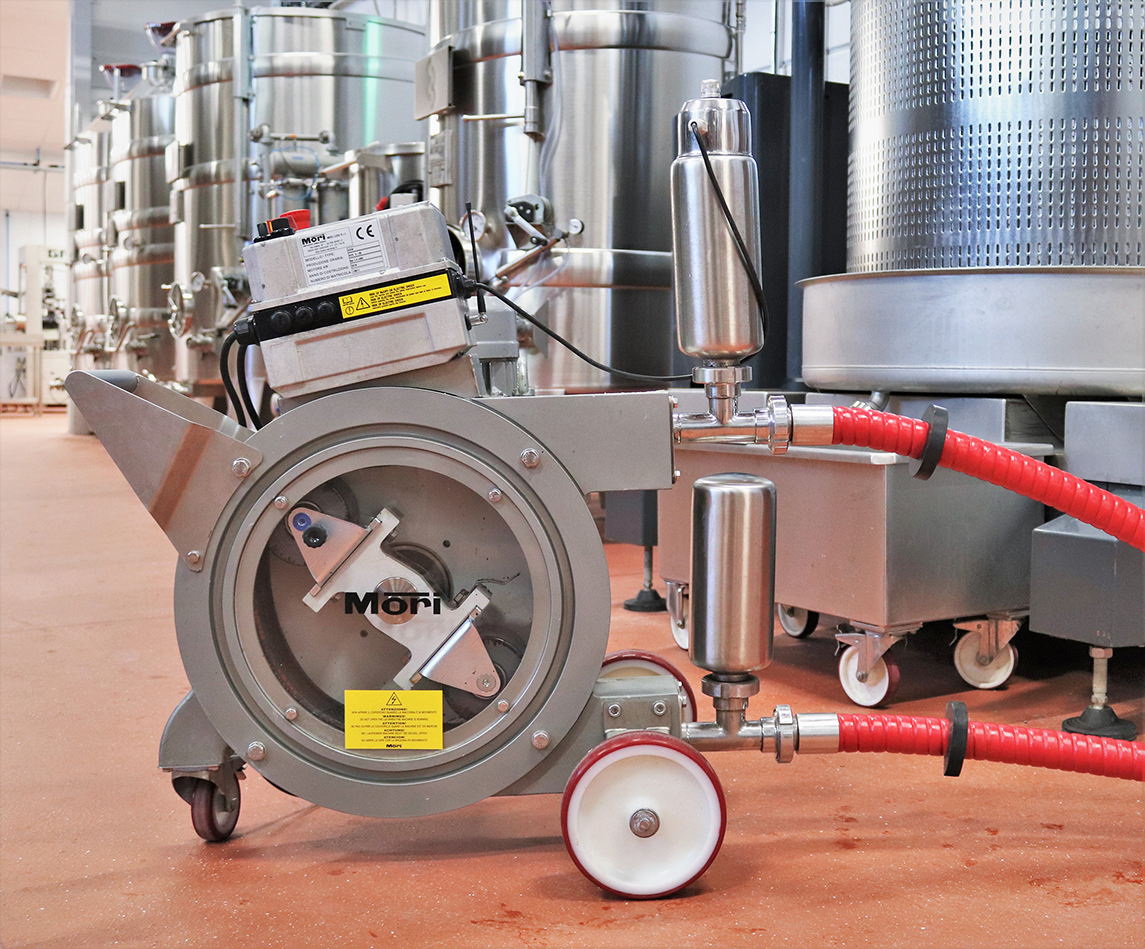
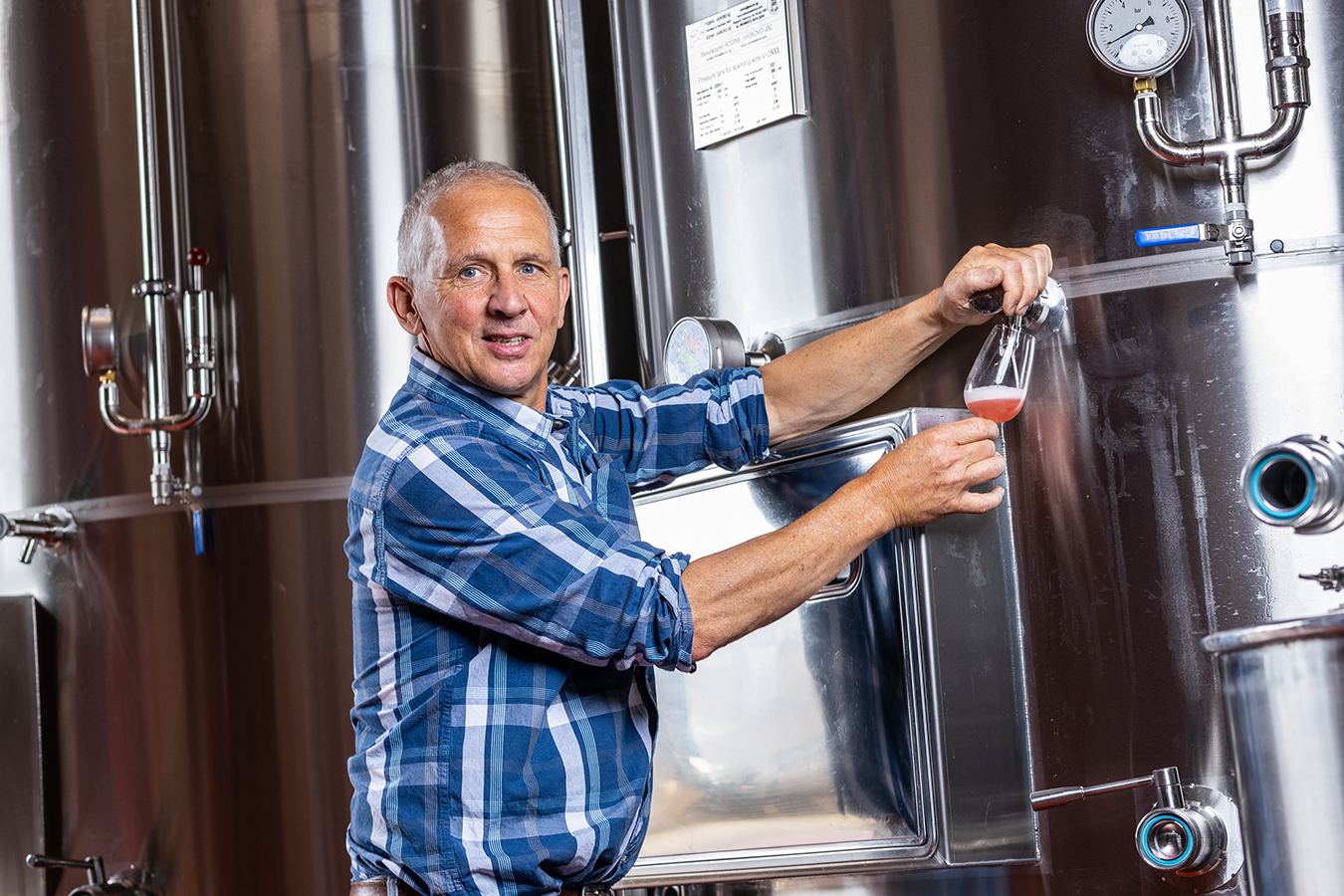
David Cowderoy

